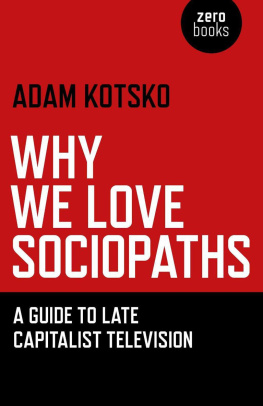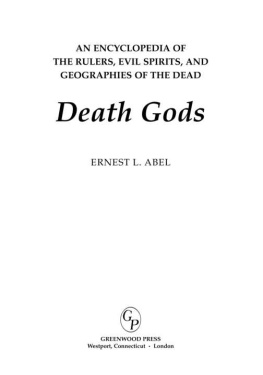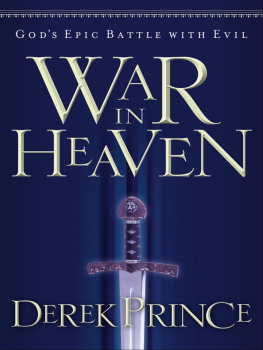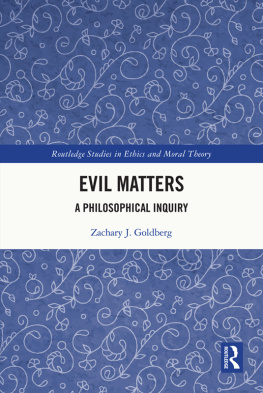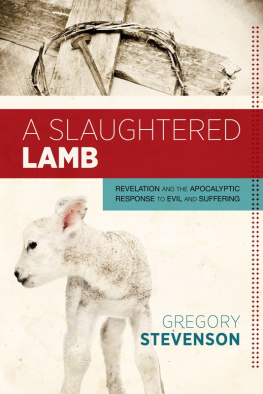THE PRINCE OF THIS WORLD
Adam Kotsko
Stanford University Press
Stanford, California
Stanford University Press
Stanford, California
2017 by the Board of Trustees of the Leland Stanford Junior University.
All rights reserved.
No part of this book may be reproduced or transmitted in any form or by any means, electronic or mechanical, including photocopying and recording, or in any information storage or retrieval system without the prior written permission of Stanford University Press.
Printed in the United States of America on acid-free, archival-quality paper
Library of Congress Cataloging-in-Publication Data
Names: Kotsko, Adam, author.
Title: The prince of this world / Adam Kotsko.
Description: Stanford, California : Stanford University Press, 2017. | Includes bibliographical references and index.
Identifiers: LCCN 2016024047 (print) | LCCN 2016025606 (ebook) | ISBN 9780804799683 (cloth : alk. paper) | ISBN 9781503600201 (pbk. : alk. paper) | ISBN 9781503600218 (e-book)
Subjects: LCSH: Devil--Christianity--History of doctrines. | Good and evil--Religious aspects--Christianity.
Classification: LCC BT982.K68 2016 (print) | LCC BT982 (ebook) | DDC 235/.4--dc23
LC record available at https://lccn.loc.gov/2016024047
Cover photograph: Guilliame Geefs, Lucifer. Photo by Luc Viatour. Wikimedia Commons.
Typeset by Bruce Lundquist in 10.25/15 Adobe Caslon Pro
League with you I seek
And mutual amity so strait, so close,
That I with you must dwell or you with me
Henceforth.
Milton, Paradise Lost
The shift in level worked out by secularization often coincides not with a weakening, but with an absolutization of the secularized paradigm.
Agamben, The Use of Bodies
TABLE OF CONTENTS
ACKNOWLEDGMENTS
Ted Jennings, Laurel Schneider, and Anthony Smith all read the full manuscript (and earlier drafts) in detail, providing sympathetic but rigorous critique. Bruce Rosenstock has been an invaluable dialogue partner from the earliest stages of this project, most notably for pointing me toward 2 Maccabees, and Brennan Breed steered me from the path of error in my reading of the Hebrew Bible. Both read early drafts and provided valuable comments. I owe all these readers a debt of thanks. I also had the privilege of teaching the materials treated in this book in multiple settings, and I thank Carol Anderson of Kalamazoo College, Barbara Stone of Shimer College, and Ken Stone of Chicago Theological Seminary for that opportunityalong with my students in all three classes. I am grateful as well to those who provided me the opportunity to work out my ideas through invited lectures: Frances Restuccia (Psychoanalytic Practices Seminar, Mahindra Humanities Center, Harvard University), Slavoj iek (The Actuality of the Theologico-Political Conference, Birkbeck Institute for the Humanities), Steve Shaviro and Ken Jackson (Wayne State University), and Marco Abel and Roland Vegso (Humanities on the Edge series, University of NebraskaLincoln). Finally, I express my profound thanks to Emily-Jane Cohen for her advocacy and help in bringing this project to fruition.
INTRODUCTION
WHY THE DEVIL?
In his testimony before the grand jury, Ferguson police officer Darren Wilson claimed to be terrified of Michael Brown, the unarmed black man he shot and killed. He returns to the topic frequently from a variety of angles, but one particular image stands out: It looks like a demon. Almost every word in this short statement is charged: the dehumanizing it, the attempt at immediacy (and therefore audience identification) in the present-tense looks, all culminating in the very literal demonization of his own victim.
Even leaving aside its apparent effectiveness, the fact that he could even utter such a thing and expect a jury of his peers to believe and sympathize with it speaks to the deep-seated racism of American societyfor which there is already a tragic abundance of evidence. The alarming imagery of Wilsons remark, however, highlights another, less noted phenomenon: the prominence of theological language in the mainstream media discussion of the black victims of police shootings.
Again and again, we learn that the victims were no angels. Now the same might be said of all of us, insofar as we are merely human. Yet the context in which this imagery is deployed shows that being no angel is effectively a euphemism for being a demona being hardwired for evil. The victims records are invariably scoured for any hint of criminal activity, as though a single misdemeanor offense singles them out for summary execution. Their every word, action, and attitude during the police encounter are adduced as evidence of a dangerous rebelliousness that could be ended only with lethal force. What this line of inquiry aims to establish is not simply that the victims have committed a crime but that they are criminals. What they do is taken as a symptom of what they area point that becomes painfully clear when we recall how often victims family connections are used as evidence of their supposedly inherent criminality.
The black victims are always presumptively criminals in this racist public discourse. Strangely, however, this ostensibly inherent inclination toward crime does not free them from moral culpability. As in the case of demons, who are still destined for eternal damnation despite being unable to do anything but evil, it instead exposes them to a particularly intense form of moral accountability in which they face arbitrary lethal punishments for their actions. Here the contrast with white mass shooters is striking. In mainstream media accounts, the sympathetic qualities of the shooter are highlighted, as though to reassure the public that this outburst of violence was truly random and unpredictable. The diagnosis is quick and absolutely uniform: the shooter was mentally ill, whichin sharp contrast to the supposedly intrinsic criminality of the black police-shooting victimserves to absolve him of any straightforward culpability for his actions. The slightest infringement by a black victim serves, in the tortured logic of the mainstream media debate, to legitimate police brutality toward blacks, whereas every precaution is taken to make sure that nihilistic mass murders by white perpetrators are always regarded as isolated incidents. The actions of members of its most privileged demographic must never be allowed to raise the possibility that there is a problem with American society as a whole.
The question of agency becomes particularly fraught when we look to the police officers themselves. Here the rhetoric emphasizes the automatic, seemingly instinctive nature of the officers action: he just reacted. From the perspective of common sense, it is difficult to see how this helps the officers case. Surely for a police officerwho is heavily armed, highly trained, and bound by oath to serve and protect the publicto follow blind impulse and murder someone is more morally culpable than it would be for a civilian to do so. The function of this seemingly counterintuitive defense is clear, however, when we note the contrast with the officers victim, who always could have acted differentlywho always had a choice. In other words, the victims actions are morally culpable because (within the media narrative) the victim has all the moral agency in the situation. In contrast, the officers ostensible lack of any agency or choice places his action in the sphere of sheer necessity and thereby renders it morally irrelevant.
In short, in the mainstream media discourse on police shootings, the theological imagery of the demonic (or, euphemistically, the non-angelic) appears as part of a complex and seemingly contradictory discourse on moral agency. This discourse aims to legitimate, or at least explain away, unjustified and destructive actions taken by representatives of the powers that beand to blame the victims for their own victimization.
Next page

